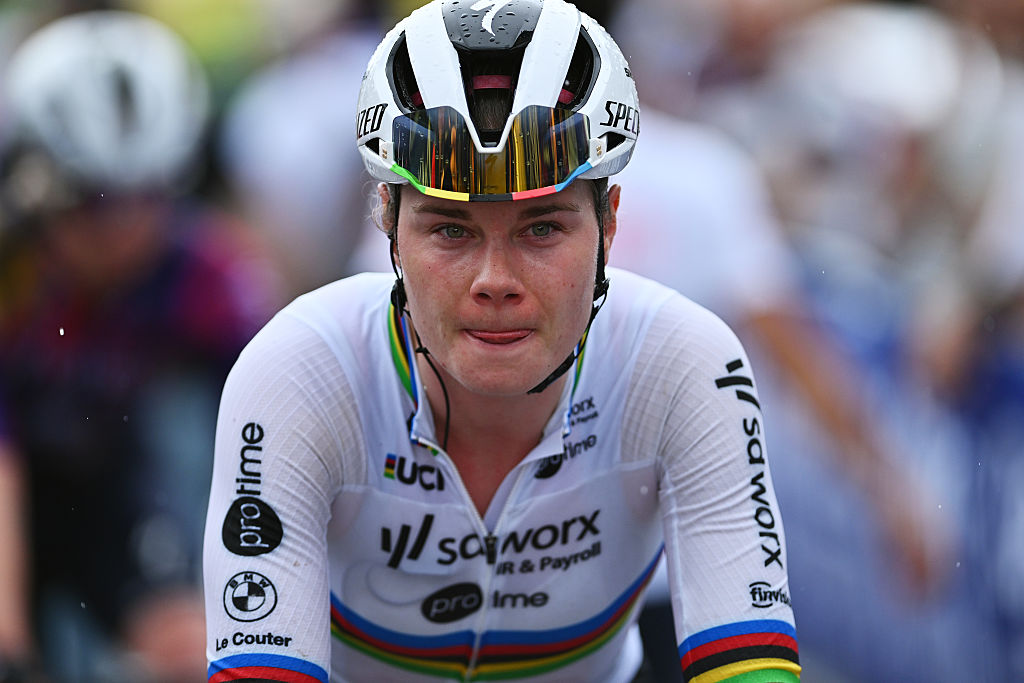Burghardt chalks up another Columbia win
Marcus Burghardt took home another Tour stage win for Team Columbia on the 196.5-kilometre trip away...
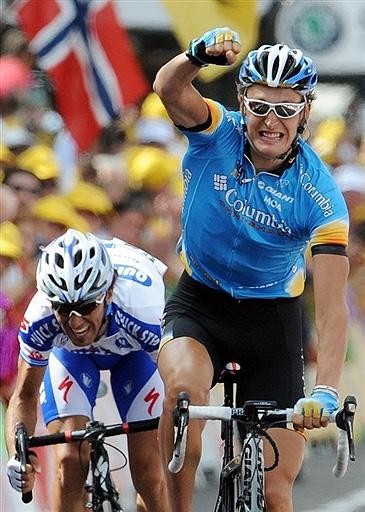
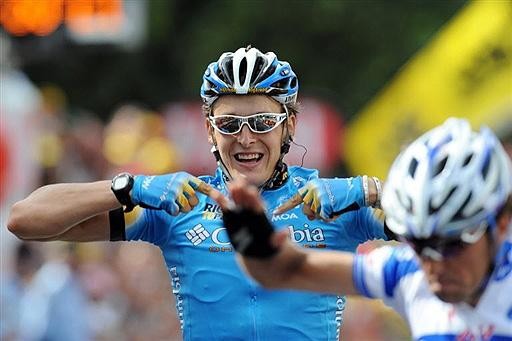
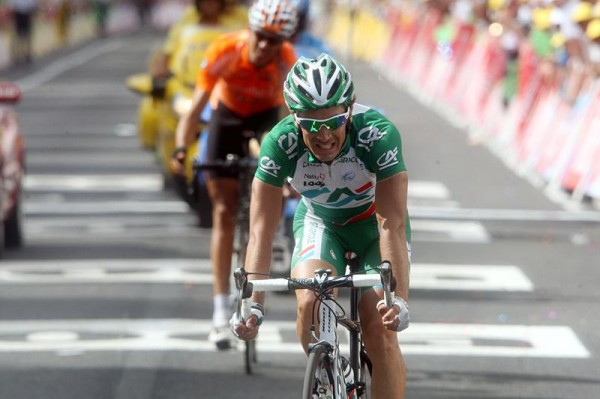
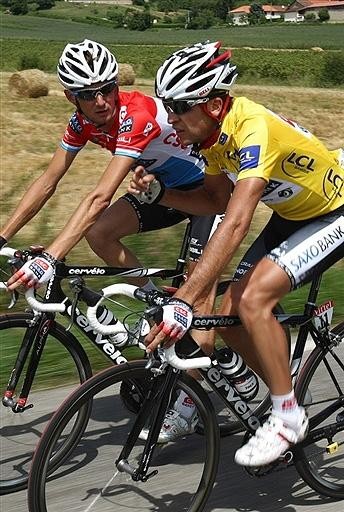
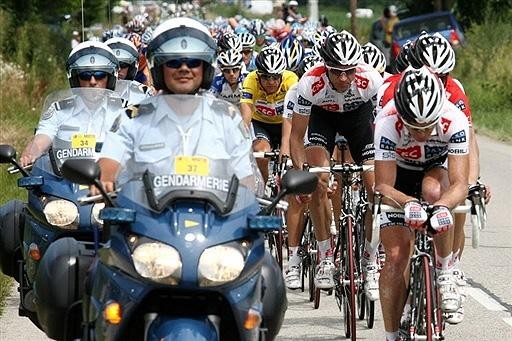
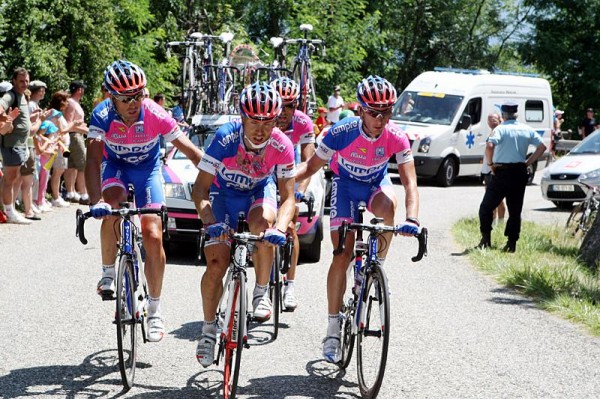




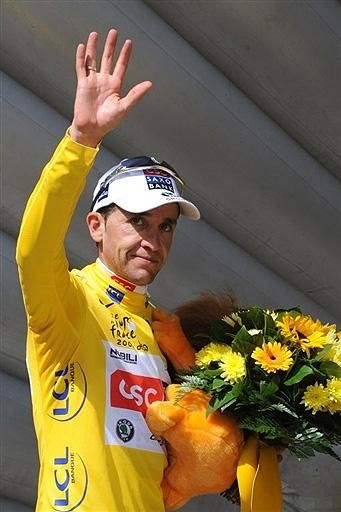
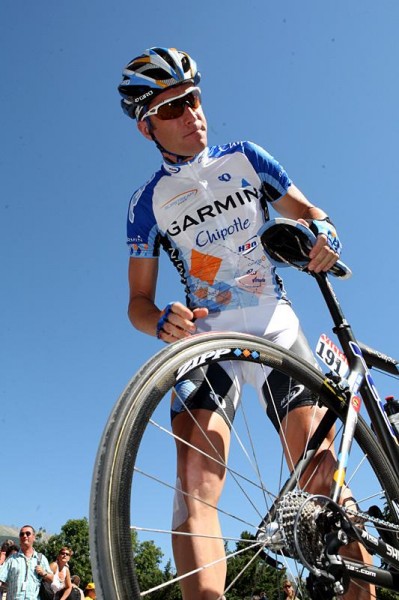
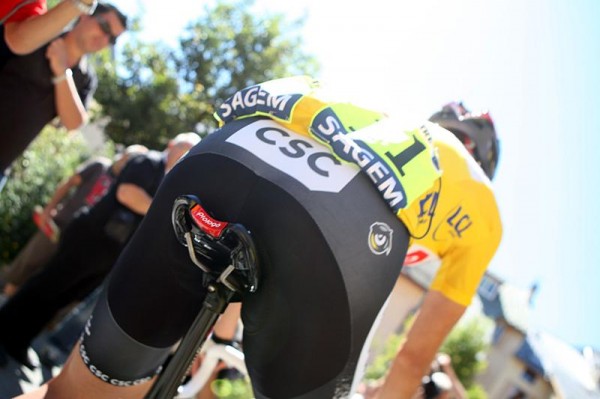

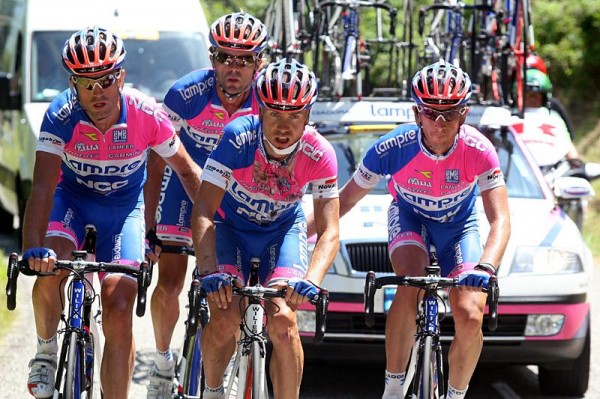
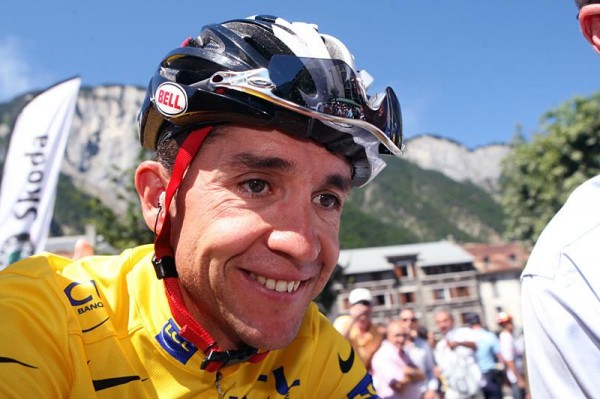
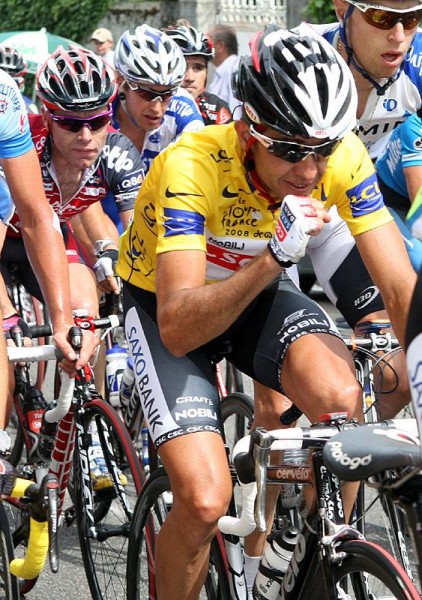
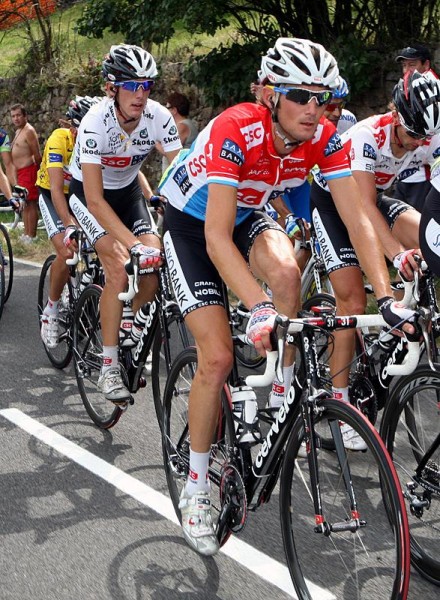
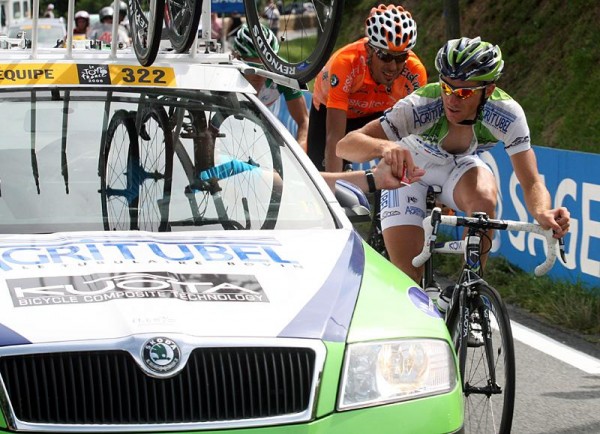
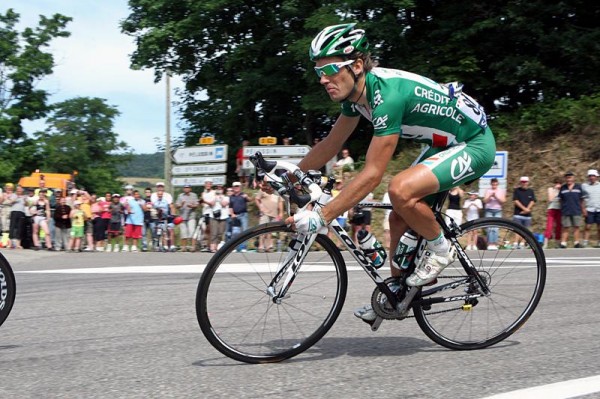
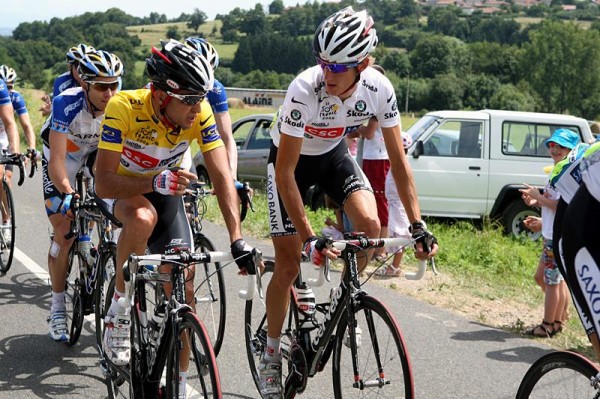
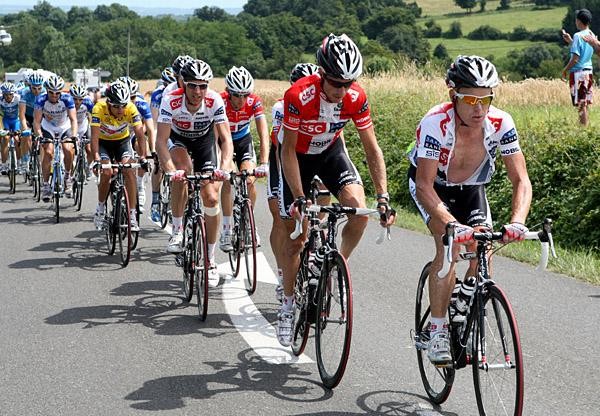
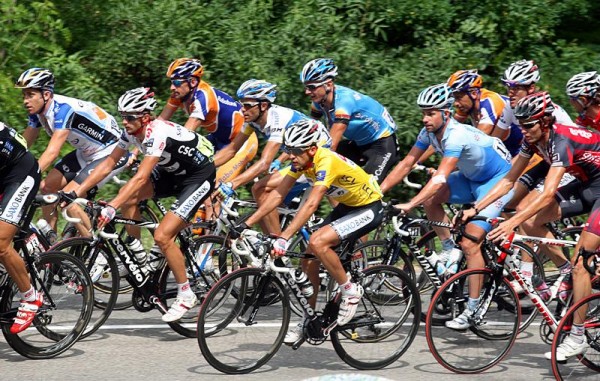
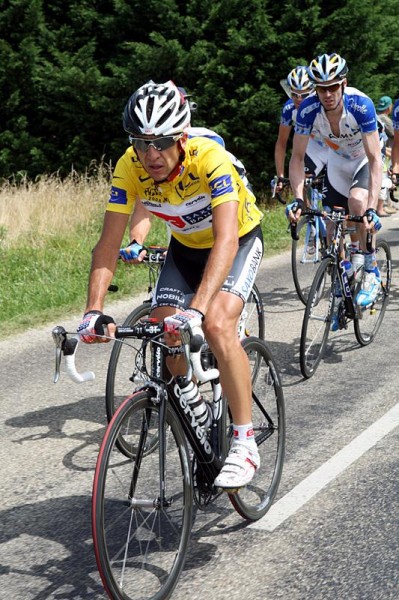
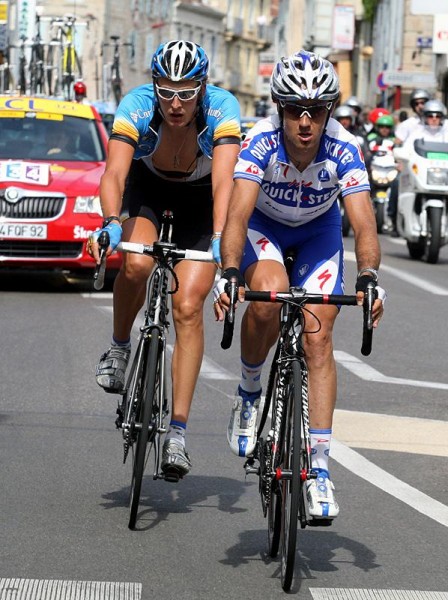
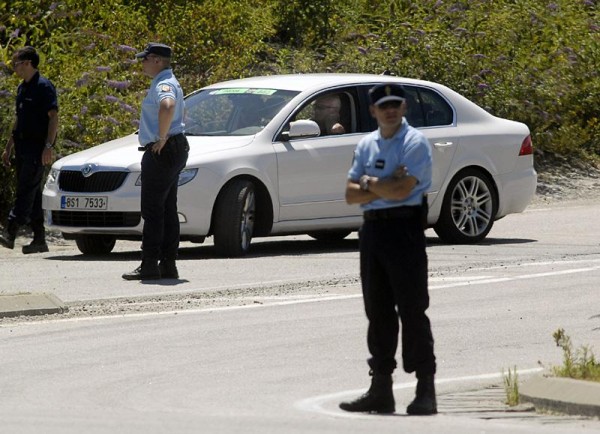
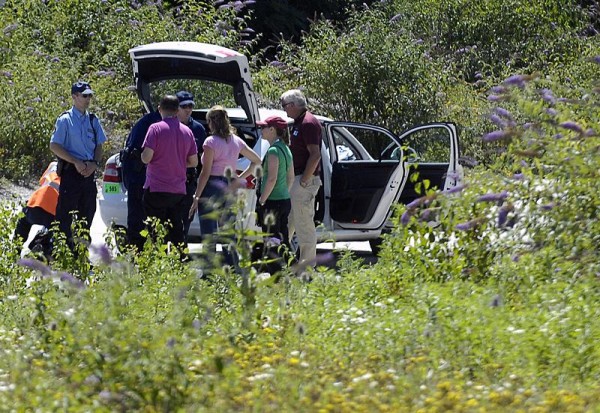
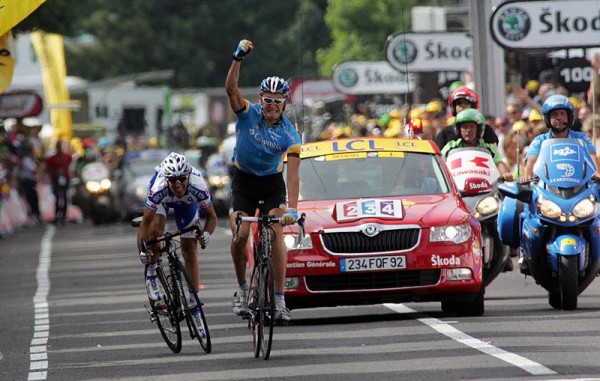
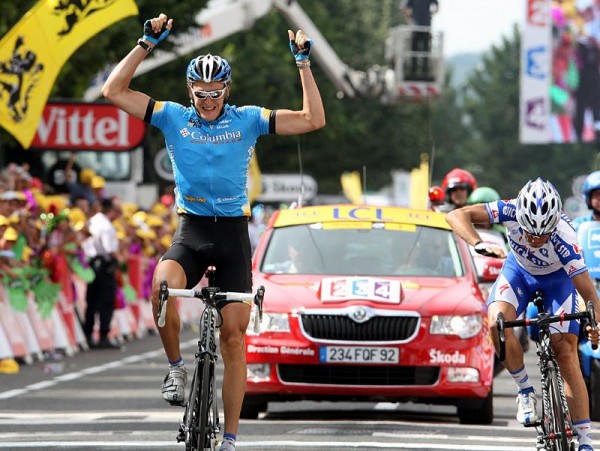
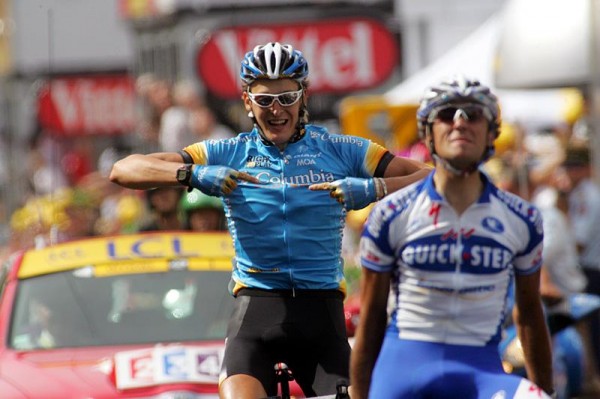
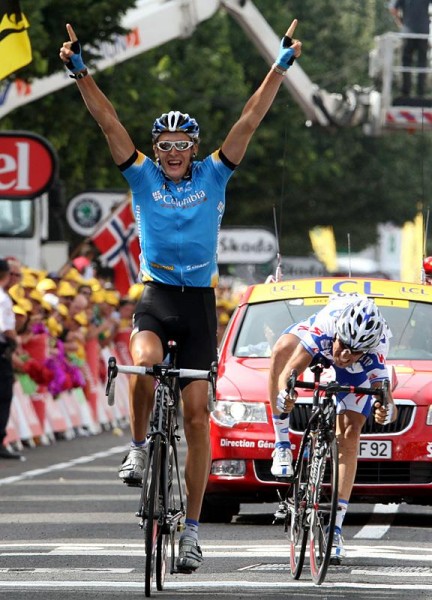

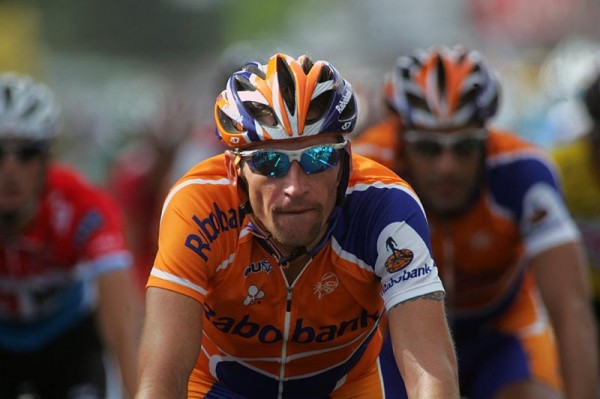
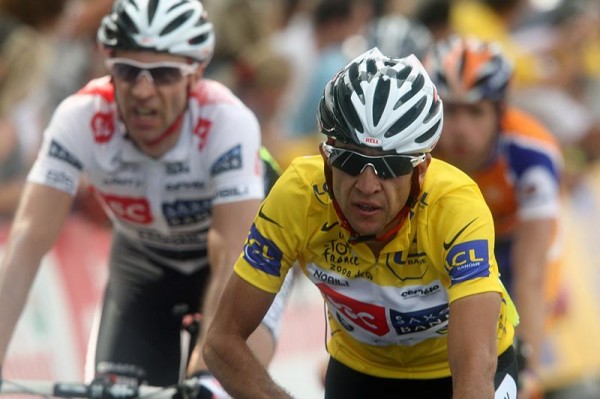
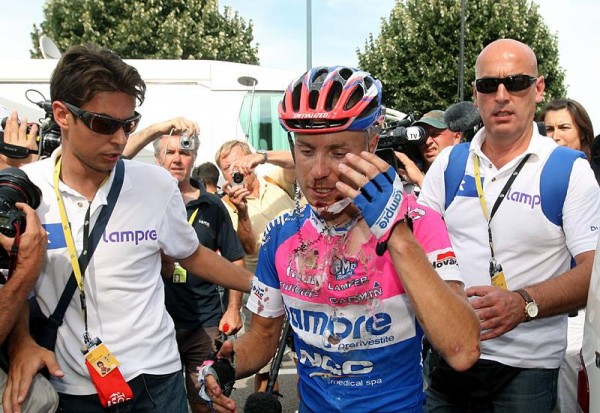
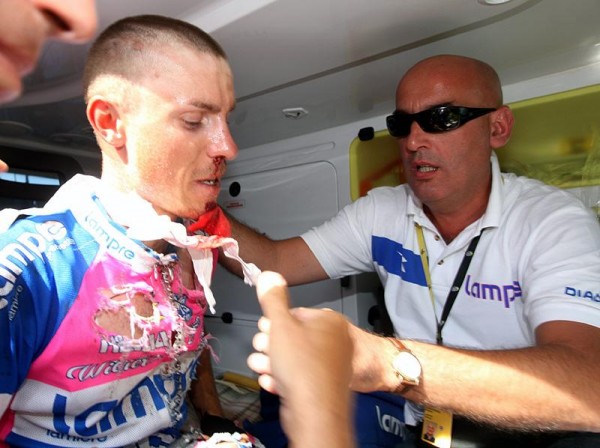
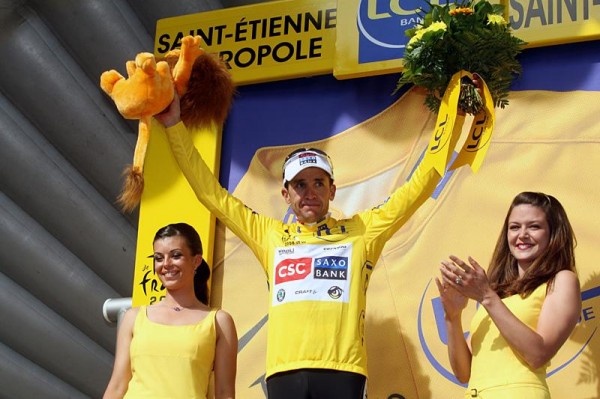
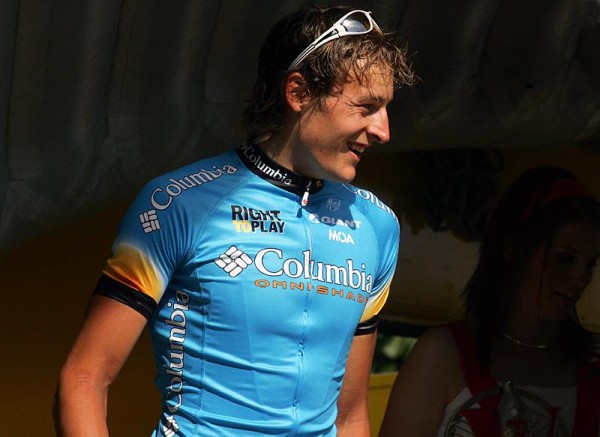
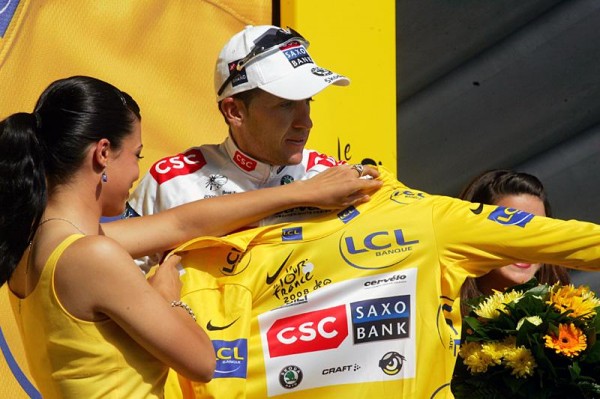
Marcus Burghardt took home another Tour stage win for Team Columbia on the 196.5-kilometre trip away from the Alps from Bourg d'Oisans to Saint Étienne. Burghardt bested his breakaway companion, Carlos Barredo (Quick Step) in a hotly contested sprint. The Quick Step rider, desperate to salvage his team's lackluster Tour, attacked repeatedly in the final kilometres, but just could not shake the big German. Romain Feillu led home a second group which had chased the two leaders throughout the stage.
"It's a huge success for me and for our team," Burghardt said. His team already had four stage wins in this Tour thanks to sprinter Mark Cavendish, while Quick Step has had no luck at all. "I really wanted to win this stage. Even before the Tour, I had targeted this and tomorrow's stage as perfect opportunities for a break, and it worked out!"
Barredo put in several attacks, and then sat on Burghardt in the final kilometres to try and gain an advantage. "In the finale, Barredo said he wouldn't lead anymore because he doesn't have the better legs in the sprint," Burghardt explained. "I was very concentrated, because Barredo always tried to get into second position and wanted to attack when I stopped focusing. Like when I tried to zip up my jersey."
The win was Burghardt's first Tour stage in his second appearance in the event, and he was motivated from the start to have a go. "I really wanted to be in the break today," he said. "I worked a lot in the beginning of the Tour. I wanted to do something for the team."
In the finish, the German was stuck on the front as Barredo tried to gain an advantage, but Burghardt had a secret weapon - a background on the track. "I tried to close one side in the sprint," he explained. "Fortunately, I had a good track school, which may have been the key to my success here today."
Romain Feillu, who wore the yellow jersey for one day after stage three, was hoping to get across to the leaders and try to win the stage, but just could not make the juncture. He had to be content with a third place finish on the day. "[Third] is great, but I wanted to win," he explained. The Frenchman was with Burghardt as he was trying to bridge to Barredo early in the stage, but then a little obstacle got in his way: the category three Col de Parmenie. "Over the hill I was all out and I couldn't follow Burghardt."
Feillu then fell back to the chasing group with Mikel Astarloza (Euskaltel-Euskadi) and Christophe Le Mevel (Crédit Agricole). "I was able to hang on to the other two. In the sprint I am the fastest [smiles]." Overall, Feillu, who suffered from toxoplasmosis over the winter and had a slow start to the year, was happy with his Tour. "I have had a great Tour in all. Now I want to arrive in Paris, then I am happy. I do hope for the sprint on the Champs. Cavendish isn't there anymore," Feillu said.
Le Mevel explained why his group failed to make up time on the two leaders. "Mikel and I believed in the move from the beginning. But eventually we had to realise it was over. The two up front were really strong. Romain [Feillu] didn't pull much," he said, but realised that nobody had much strength left. "It is the third week. Everybody wants to win, but sometimes it doesn't work out. C'est comme ça in the Tour..."
Mikel Astarloza (Euskaltel) gained some minutes on GC thanks to his breakaway, but his initial goal when setting out in the chase was to win the stage. "In the end, we didn't win the stage, nor did I get much time on the bunch [3'04 minutes -ed.]," he said in the finish. "We went out too late. They had three minutes advantage, and afterwards it was impossible to bridge up.
"We were three, but only two of us were working. I don't know if Feillu was just weak or maybe he was saving himself for a sprint, but sprinting for third place... Le Mevel and I tried everything, but it didn't work out." Astarloza now sits in 15th position on GC. "The most important thing would be to finish in the top ten, anything that comes afterwards is not really important. I will try everything in the last time trial. Tomorrow, I'll just take it easy to save some forces."
GC men take a breather
The day saw a détente between the men battling for the overall classification. Carlos Sastre finished in the group with all of his rivals to hold the yellow jersey for another day. "It was a pretty nice day, it was a fast start but as soon as the break went away we were able to put the team on the front and ride a steady tempo - it was a nice day," Sastre said.
The day could have been used by the other GC hopefuls to try and gain some time. Sastre and his team-mate Fränk Schleck both could use a bit more time on Cadel Evans and Denis Menchov going into the time trial. Schleck said today wasn't an ideal time to try anything, but he hasn't discounted the idea. "We'll see how things go tomorrow but there was no use in me attacking today. It was very difficult but we had great teamwork today and that's what's important."
The race for the jersey of best young rider, on the other hand, did see some action. On the final climb, Roman Kreuziger followed the attack of Samuel Dumoulin (Cofidis), forcing Andy Schleck to give up pacing the yellow jersey and go with the move. Dumoulin was disappointed that the white jersey followed what was just a 'bit of fun'. "[The attack] was for best local rider. I saw Cyril [Dessel], another local rider. We wanted to have a little bit of fun. I didn't think Kreuziger and Andy Schleck would follow us. That sort of messed up our plan. But we are just trying to enjoy the race. And I think the fans found it sympa and enjoyed our attacking," Dumoulin said.
Schleck was caught off guard when Kreuziger went with the move. "When Roman attacked I wasn't on his wheel. I had to get out of the peloton. Chapeau, that was a good move," Schleck said. He didn't need to wait for instructions from his team director to know when to follow. "I am professional enough that I can look after myself," he said.
The younger Schleck has had a strong Tour with the exception of his single bad day in the Pyrenees, and even his brother Fränk said he would win the Tour one day. Andy prefers to stay more down to earth. "I hope to return stronger next year and will give it 100%. Before I think about the overall, I am thinking about a stage win. I was ready yesterday," he said.
Despite not being able to fight for the stage win on Alpe d'Huez, Schleck the younger is pleased to have had the experience of racing for the team. "Now, I have more kilometres and more experience. People kept telling me to stay calm, which is what I am doing now."
There was some disturbing news during the stage that the Schlecks' father had been detained by customs police, who searched the car and detained him for several hours. Andy Schleck wasn't too concerned. "Customs is just doing its job. It doesn't bother me at all."
The day's biggest casualty was Damiano Cunego, who crashed early in the stage and spent the day riding to make the finish within the time limit with three team-mates.
How it unfolded
150 riders rolled from Bourg d'Oisans under sunny skies at 12:28 for the drop of the flag, and as has been the case for the entire Tour, the attacks began immediately. Marcus Burghardt (Columbia), Filippo Pozzato (Liquigas), Sebastian Lang (Gerolsteiner), Freddy Bichot (Agritubel), Björn Schröder (Team Milram), Stéphane Augé (Cofidis) and Maxime Monfort (Cofidis) made up the first solid breakaway which gained nearly a minute advantage, but the field was still chasing at breakneck speeds.
The high pace made for a dangerous time in the peloton. Alexandre Botcharov (Crédit Agricole), Philippe Gilbert (Française des Jeux) and Damiano Cunego (Lampre) crashed on a straight piece of road. Cunego took the longest to get rolling again as he received medical attention for a bloodied chin.
After 43 kilometres, Bichot took the sprint in Grenoble, ahead of Schröder and Augé. Shortly thereafter, the group was caught by the peloton. The first hour of the race was done in the incredible speed of 55.7 km/h - the fastest hour of the Tour. At kilometre 63, Carlos Barredo (Quick Step) was able to escape the bunch, despite the high speeds. The pace had put Cunego ten minutes behind, despite the assistance of four team-mates.
Marcus Burghardt (Columbia) and Romain Feillu (Agritubel) attacked to join Barredo, and gained a quick minute over the peloton. As the leader crested the top of the first climb, the category three col de Parmenie (km 78), he was just 10 seconds ahead Burghardt, who had dropped Feillu on the climb. The German managed to catch Barredo on the descent, and the pair would ride together for the remainder of the stage.
Although the peloton had fallen behind the leaders by several minutes, the attacks continued unabated. Mikel Astarloza (Euskaltel-Euskadi) and Christophe Le Mevel (Crédit Agricole) went clear on the climb, and were chasing two minutes behind Feillu by the top, and 3'40 behind Burghardt and Barredo.
The peloton set a steady pace on the climb, keeping a five minute gap to the leaders, while Cunego was struggling almost a quarter of an hour behind.
With a long, gradual descent following the feed zone, the gaps stabilized between the four groups on the road: The two leaders were holding steady 4'15 ahead of the three chasers, 10 minutes ahead of the peloton and 22 minutes ahead of Cunego. Barredo led Burghardt into Chavanay, which marked the start of the next difficulty, the category two Croix de Montvieux.
Barredo led the duo over the top of the climb, while Astarloza led the chasing group ahead of Le Mevel and Feillu. The bunch followed 10'09 later with Team CSC-Saxo Bank letting Stuart O'Grady set the tempo. Cyril Dessel passed him in a rather pointless move to catch the last mountain points. Barredo and Burghardt were momentarily separated through a roundabout, but hit the final intermediate sprint in Saint-Chamond together. Burghardt preceded Barredo, and 4'39 later, Astarloza led Feillu and Le Mevel over the line.
Approaching the category four Côte de Sorbiers, the two leaders began eyeing each other nervously. With less than a kilometre to the top, Barredo opened up the attacks, but Burghardt quickly marked him. Barredo tried once again just before the top. He managed to cross the KOM line first, but couldn't shake the German. The third time he tried was when Burghardt was zipping up his jersey, leaving Burghardt slightly angry.
With less than eight kilometres left in the stage, it was Burghardt who tried to get away, but that was equally unsuccessful. The duo continued to carefully mark each other, chat a little bit amongst themselves and ask their directeurs sportifs for advice. Le Mevel preceded Feillu and Astarloza over the top of the Côte de Sorbiers, 4'50 after the leaders. Astarloza then attacked out of the break, but was brought back immediately. Burghardt and Barredo settled things in the front. Kreuziger attacked out of the peloton in the fight for the white jersey, but Andy Schleck was attentive and followed the move to take 10th on the stage just a handful of seconds ahead of Oscar Freire.
Twenty minutes after the first rider had crossed the line, a battered and defeated Damiano Cunego crossed the line with his four team-mates, happy just to make the time limit.
The latest race content, interviews, features, reviews and expert buying guides, direct to your inbox!
Latest on Cyclingnews
-
Amazon Prime Day Bike Deals Live: 33% off Garmin computers, Electric pumps and Tacx smart trainers
Deals on Canyon electric bikes, Adidas shoes, AirPods and more. Day three of Amazon Prime Day is here, and the sale is heating up -
Airpods Pro 2 vs Pixel Buds Pro 2: Battle of the Amazon Prime Day deals
With both options on offer for Amazon Prime Day, which should you part with your money for? -
Back pain forces Lotte Kopecky to abandon Giro d'Italia
'As a precaution ahead of the Tour de France Femmes, she is leaving the Giro d'Italia Women to take three to four days of complete rest' confirms SD Worx-Protime -
If you're looking for a Garmin Edge 540 in the Amazon Prime Day sale, I have found a much better deal for you
The Garmin Edge 540 is discounted by 15% but there are better deals on Garmin out there



